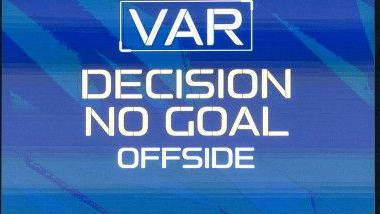Livingston manager David Martindale predicts a future where AI replaces referees, using cameras to make autonomous decisions. He raises concerns about VAR’s effectiveness and costs, suggesting technology could eliminate human error. This vision sparks debate about the balance between accuracy and the essence of football.
The future of football refereeing is under scrutiny as debates rage about the effectiveness of current Video Assistant Referee (VAR) systems. Amidst the ongoing discussions, Livingston manager David Martindale has offered a bold prediction: referees could one day be replaced entirely by artificial intelligence (AI). This vision involves a camera-only system that autonomously makes critical in-game decisions.
Martindale's comments come at a time when semi-automated offside technology has already become a familiar feature in major tournaments, such as the 2022 World Cup. This technology has demonstrated the potential for reducing human error, paving the way for more advanced AI applications in the sport.
However, the implementation of technology in Scottish football has been slow. While the Scottish Premiership approaches its third year of VAR, it still lacks goal-line and offside technology, primarily due to the prohibitive costs. This situation leaves room for debate about whether the existing VAR system is truly enhancing the game.
Data from a May 2024 Scottish FA's VAR independent review panel (IRP) revealed that 90.3% of on-field decisions were deemed correct, and this figure rose to 97.8% when VAR interventions were included. Despite these numbers, recent controversies have emerged. Martindale highlighted that there were "two or three really poor decisions" made in a single weekend, underscoring the ongoing challenges with VAR implementation.
Livingston's experience offers a unique perspective on this issue. After spending last season in the Championship, where VAR is not used, they have returned to the top flight. Martindale expressed his reservations about the current state of VAR, stating, "I'm not sure VAR is helping the game now. You're using the footage, but it's the personnel that's then interpreting that footage, so that's a big problem for me."
Martindale further emphasized his experience with and without VAR, saying, "I think I'm in a great position to speak about this because I was VAR previously, no VAR, and VAR again." He shared a personal anecdote to illustrate his point: "What was the first goal this season? Falkirk, here and we score, and I'm running away, I'm up the touchline celebrating with my players, and I'm like, 'you might not even get this goal'. That elation, the drop off, it's terrible. Then by the time you're given the goal, can you lose that moment? Is that not what football's all about?"
 Image source, SNS
Image source, SNS
The increasing costs of VAR are also a concern for Livingston. Martindale noted that his club pays "more than £100,000" a season towards the running costs of the VAR system. He questions the sustainability of this expenditure and warns of further increases.
"One of my biggest concerns originally when we voted for this - and I was a big advocate of it - I felt it would have helped the game, was how much it was going to cost, and secondly, how much is that cost going to go up every year?" Martindale said. "The costs keep going up and up, but to make the game better we need to spend more money, because we need to bring more technology in."
Martindale envisions a future where technology takes over completely: "Where does it end? Do you end with no officials on the park and it's artificial intelligence that's refereeing the game? Because that's where it's going to go. Not robots, just artificial intelligence. Cameras videoing the game. Cameras making the decisions. You look at AI, there's data that says by 2030 the evolution of AI is going to be much more powerful than the human race. Not just a human, the full global human race."
In a lighter moment, when asked if managers would also become redundant in an AI-dominated world, Martindale quipped, "Hopefully not, then I can go back on the building site."
The debate about the role of technology in football, particularly VAR, continues to evolve. Martindale's vision of an AI-refereed future underscores the potential for significant changes in the way the game is officiated, balancing the need for accuracy with the preservation of the sport's intrinsic elements.